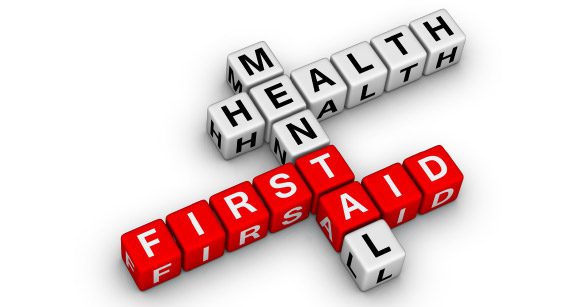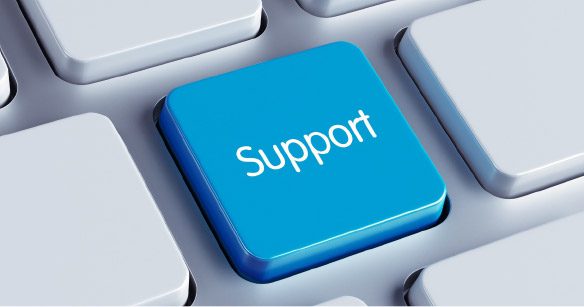How would you feel if a member of staff walked through your door right now clearly in pain? You’d probably ask if they were ok and if they were hurt with the assumption of a physical injury. What if the injury turned out to be emotional? Imagine being able to get support from a mental health first aider.

First aid is intended to immediately support a person in distress. Traditional first aid focuses on physical harm with the ultimate intention of saving a life. In its turn, mental health first aid looks to round things out by supporting emotional wellbeing.
What does a mental health first aider do?
Duty of care as an employer isn’t just about the physical. So a mental health first aider is there to be the first point of contact for anyone who is feeling emotionally distressed or needs help with their mental wellbeing.
Their first aid kit doesn’t contain plasters and eyes washes. Instead of using physical items, they will have training in techniques that will provide support. For example, developing listening skills is an important part of finding out what is causing the distress and the best way to make the individual feel more comfortable.
They will also have knowledge of further sources of support such as the NHS and support groups. In larger organisations, they may be able to signpost to in-house services. Conditions and issues they would be expected to have a knowledge of are wide-ranging. It includes depression, drug and alcohol issues, suicide and self-harm, traumatic events, anxiety, eating disorders and psychosis.
Having staff members who are trained to assist in such situations removes some of the stigmas around mental health. It encourages people to seek help and find a way forward rather than just putting on a brave face.
Mental health first aid in your workplace
If you’re thinking that this sounds like a great idea for your workplace then why not set up a programme?
Getting individuals trained as mental health first aiders is a good starting point. We offer nationally recognised qualifications in this area. It can be a challenging role to take on but can make a real difference.
However, it shouldn’t be just one person that is responsible for this. Just as general health and safety should be part of your workplace culture, mental health is the same. Imagine the situation where an individual is distressed but when they try to get help with their issue they are told that the mental health first aider is at lunch and they’ll have to wait!

Support is needed when it’s needed. Sometimes it will be for advice to prevent a crisis. At other times it will be unexpected. Accidents do happen despite our best efforts.
For this and other reasons, it’s good to see what’s already in place. Do you have other support that this would work with? There may be examples of good practice already in place or a staff member who is showing leadership in this area and has the passion to make it happen.
Just like other areas of health and safety it’s better to prevent harm before it happens. Consider what support could be put in place at milestones. For example, mental health may be impacted by taking on extra responsibilities or becoming a parent. Or reviewing policies so that they reflect a rounded mind and body definition of workplace safety. Where this is already in place then raising awareness of them and encouraging use can be seen as akin to fire drills and manual handling awareness.

